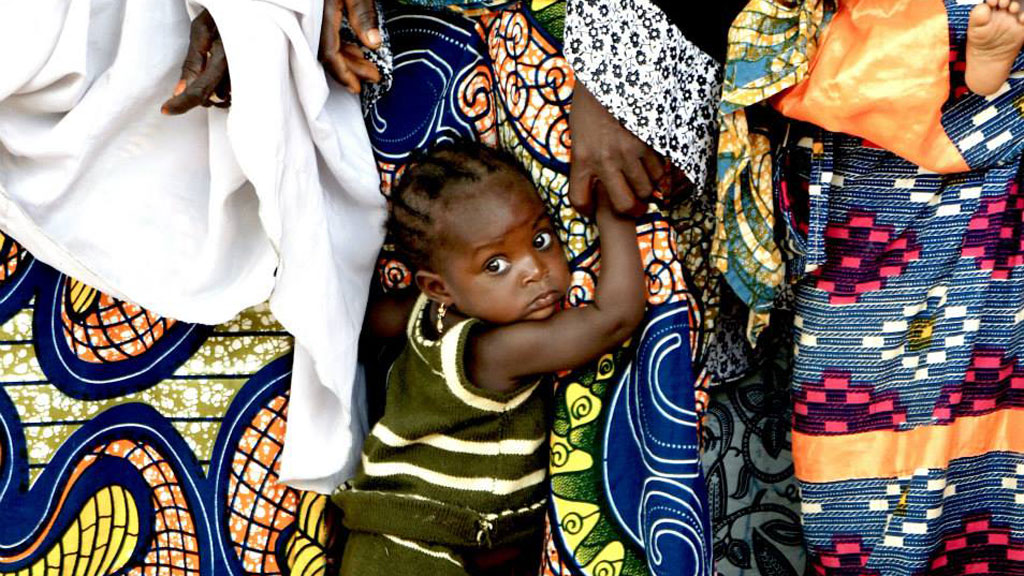Lagos State governor, Mr. Akinwunmi Ambode, yesterday, said Fela Anikulapo-Kuti, popularly known by his first name, Fela, deserved to be celebrated with many monuments because he made the world sit up and take notice of the energy of African art and music.
Speaking at the unveiling of an effigy to immortalise Fela on his birthday, Ambode maintained that fela was an enigmatic artiste, who used the platform of his art to agitate for social and human rights by challenging the government and people to explore development through social and economic activities that are rooted in African values.
The governor, while noting that Fela would have been 80 years next year, said for his contribution to music, art and entertainment in Lagos, Nigeria and Africa, the Lagos State government believed he should be immortalised.
According to Ambode, Fela deserves to be celebrated with many more monuments and different artistic expressions. “Today, he is still alive in his music and in the music of Femi, Seun and other artistes who have followed his style of music. Fela will forever be accorded his position in the Global ‘Hall of Fame’ of artistes.
“The phenomenon that the world knows as Fela was deeply rooted in the evolution of Lagos State. The story of music, art, entertainment and tourism in Lagos and Nigeria cannot be told without an eloquent mention of the ‘Abami eda’.
“On this day, October 15th, which would have been Fela’s 79th birthday, the government and people of Lagos State celebrate Fela with the unveiling of this Liberation Statue,” Ambode said.
For the governor, though it has been 20 years since he passed on, the memories Fela left remain evergreen. “Today we celebrate a man who voluntarily turned his back on a life of comfort and privilege, and took up his saxophone as a weapon to fight for the liberation of our people from neo-colonialism and bad governance.”
Ambode said the Liberation statue unveiled was not an image of Fela but a symbol of Fela’s philosophy. “This artwork was created as a form of respect and remembrance to this legend; what he stood for and fought for with his music; his mythology; struggle for freedom; fight for human dignity; social consciousness; courage and Pan-Africanism.”
Speaking on behalf of the Fela Kuti family, Yeni Kuti, thanked Ambode for putting up the effigy. She disclosed that Fela never liked statue, so Fela would be happy that a monument put up to celebrate him was an effigy of his costume.
The Special Adviser to Governor Akinwunmi Ambode on Arts and Culture, Mrs. Adebimpe Akinsola, revealed that in the last two years, Ambode has given artists room to express themselves like never before.
According to her, Fela is part of the Lagos success story because it was the space he used to express his thoughts about the dignity and value of Africa.
After unveiling the effigy, the governor went to the Kalakuta Museum where he was received by Fela family members, including Femi, Yemi and Seun. Dignitaries at the unveiling included Femi Falana, Pa Benson Idonije, Jahman Anikulapo, Olu and Joke Jacobs, among many others.
Meanwhile, few minutes after they left the annual Felabration at the New African Shrine in Alausa, Ikeja, the duo of Moshood Olowu and Olasunkanmi Ogundipe along with their accomplices, who are now at large, allegedly robbed commuters in different parts of Lagos.
While Olowu and Ogundipe carried out their operations in Ketu and Ojota areas of the state respectively, another suspect, 22-year-old Rasak Adebola, was arrested by operatives of the Rapid Response Squad (RRS) in a separate incident for bag snatching.
It was gathered that 24-year-old Olowu and 26-year-old Ogundipe and their two other accomplices, now at large, left New African Shrine and were heading to Ikorodu through Ojota when they committed the crime.
Olowu said: “We were at Ojota around 5:00a.m. after leaving Felabration venue to board a bus to Ikorodu. I dipped my hand into another passenger’s pocket when we were rushing the bus. I removed his phone and passed it to my colleagues, Ayobami and Jide.
The owner held my hand and prevented me from joining the bus. Ayobami and Jide, who I gave the phone to, went away while RRS policemen who were passing by arrested me.”
Olajide on his part said he was in company of nine other accomplices from New African Shrine when they accosted one Pastor Adetayo Samuel, who was waiting to board a bus to Ibadan at Old Toll Gate, Ketu and collected three mobile phones from him and N6,000.
He said: “We fled the scene immediately and we broke into three groups. We were trailed by RRS patrol team, who received complaint from our victim. They arrested me while I was trying to board a bus to Ibafo.”
Confirming the incidents, the state Police Public Relations Officer, ASP Olarinde Famous-Cole, said the three suspects would be transferred to the State Criminal Investigation Department (SCID), Panti, Yaba, for further investigation and prosecution.
– Channels































































